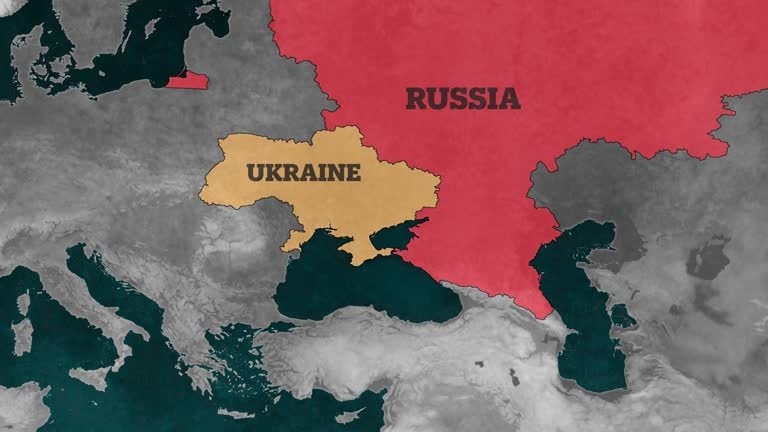Smoke Over Kyiv Whispers of Peace
 Russia Ukraine war concept map animation
Russia Ukraine war concept map animationThe brief Easter truce between Russia and Ukraine offered a fleeting moment of respite in a conflict that has gripped Eastern Europe for over two years. However, the cessation of hostilities was short-lived, as renewed attacks quickly shattered hopes for lasting peace. This development underscores the complexities of the situation and the challenges inherent in negotiating a durable resolution.
Ukrainian President Volodymyr Zelenskyy has expressed willingness to engage in peace talks with Russia, contingent upon the establishment of a genuine ceasefire. He emphasized that Ukraine is prepared to negotiate in any format once hostilities cease, highlighting the importance of addressing critical issues such as territorial integrity and security guarantees. Zelenskyy reiterated Ukraine’s stance on not recognizing Russia’s annexation of Crimea, aligning with the nation’s constitutional principles.
Conversely, Russian President Vladimir Putin has signaled openness to peace discussions, yet actions on the ground suggest a different narrative. The resumption of military operations following the truce raises questions about the sincerity of Russia’s intentions. Analysts caution that such moves may be strategic, aimed at consolidating gains rather than pursuing genuine peace.
The international community remains engaged in facilitating dialogue between the conflicting parties. Recent meetings in London involving officials from Ukraine, the United States, the United Kingdom, and other European nations aim to explore pathways to a ceasefire and long-term peace. While these diplomatic efforts are ongoing, tangible outcomes remain elusive, reflecting the deep-seated mistrust and divergent objectives of the involved parties.
Moreover, the conflict’s impact extends beyond the immediate region, influencing global economic stability and security dynamics. Disruptions in energy supplies and trade routes can have cascading effects, affecting nations far removed from the epicenter of the conflict. Pakistan, with its strategic position and economic aspirations, has a vested interest in the restoration of peace and stability in Eastern Europe.
The path to peace in Ukraine is fraught with challenges, requiring genuine commitment from all stakeholders. Ceasefires must be honored, and negotiations should be pursued in good faith, with the aim of achieving a comprehensive and lasting resolution. The international community, including nations like Pakistan, can play a constructive role by supporting diplomatic initiatives and encouraging adherence to international norms.
As the situation evolves, the hope remains that sustained diplomatic efforts will pave the way for an end to hostilities, allowing for reconstruction and reconciliation. The lessons gleaned from this conflict underscore the imperative of proactive diplomacy and the perils of protracted warfare.











